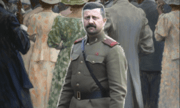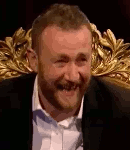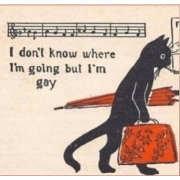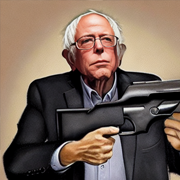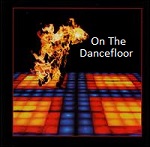|
What is the most powerful flying bug? This poll is closed. |
|||
|---|---|---|---|
| 🦋 |
|
15 | 3.71% |
| 🦇 |
|
115 | 28.47% |
| 🪰 |
|
12 | 2.97% |
| 🐦 |
|
67 | 16.58% |
| dragonfly |
|
94 | 23.27% |
| 🦟 |
|
14 | 3.47% |
| 🐝 |
|
87 | 21.53% |
| Total: | 404 votes | ||
|
Frosted Flake posted:Speaking of Poland, has anyone read (or heard of) Forgotten Holocaust: The Poles under German Occupation 1939-1944? It's part of the same project as Snyder and Applebaum, and was published as part of the push to create "Central Europe" for EU and NATO expansion, but it says the quiet part loud and takes things to their logical conclusions in a way that's still jaw dropping: jesus christ
|
|
|
|

|
| # ? Jun 10, 2024 23:10 |
|
Raskolnikov38 posted:
|
|
|
|
Frosted Flake posted:They just printed Nazi talking points in more neutral language Timothy Snyder uncritically cited a ton of Nazis in his book. I'm not familiar with the author of this book, but since he's associated with Snyder, I'm sure he sucks too.
|
|
|
|
thechosenone posted:Well yes but my question was if they're gonna get to take a spin on the wheel of pain or if once their turn comes up they draw straws and make the low men on the totem pole a sacrifice for the rest, or do they just lose cohesion once their turn on the chopping block comes and they scatter like suicidal/homicidal/genocidal flies? the Nazis so far do not have the best record of performance in this conflict, they've failed every assignment they've been given from Mariupol to being the tip of the spear in the counter-attack to re-capture Bakhmut from Wagner in April to being withdrawn from the front in Zaporizhia after a bunch of their fancy western supplied toys got exploded. It is probably prudent to keep them as the last reserve alongside the people with mental illnesses and those that had arms or legs amputated. **probably their biggest triumph of the war was when the Ukrainian affiliated Russian Nazis dashed over the border into Russia and killed some senior citizens, made some Tik Toks and then ran back across the border to Ukraine losing only 50% of their force in the process. Starsfan has issued a correction as of 02:58 on Sep 8, 2023 |
|
|
|
I bet this manager is really cool to work for
|
|
|
|
Good news for India's relations with Russia - India has proposed that a G20 statement condemning the suffering caused by Russia's invasion of Ukraine, also accommodate the views of Russia and China that the forum is not the place for geopolitics https://www.reuters.com/world/india-seeks-g20-consensus-by-noting-russias-views-ukraine-2023-09-07/ India seeks G20 consensus by noting Russia's views on Ukraine By Shivangi Acharya, Nikunj Ohri and Sarita Chaganti Singh September 7, 2023 1:29 PM UTC · Updated 5 hours ago NEW DELHI, Sept 7 (Reuters) - India has proposed that a G20 statement condemning the war in Ukraine also accommodate the views of Russia and China to avoid an impasse for the divided bloc, Indian officials said on Thursday. Leaders including U.S. President Joe Biden gather in New Delhi this weekend for a summit aimed at boosting food security, climate action and debt relief for poor nations. But the deliberations of the world's 20 biggest economies have been hindered by differences over Russia's invasion of Ukraine that have hardened since last year's Bali summit, delegates said. Western countries want a strong condemnation as a condition for agreeing to a Delhi declaration. Russian Foreign Minister Sergei Lavrov, who will attend instead of President Vladimir Putin, has said Moscow will block the final declaration if it does not reflect its stand. India has suggested that the G20, while condemning the suffering caused by Russia's invasion, also reflect Moscow and Beijing's view that the forum is not the place for geopolitics. G20 sherpas have been going back and forth over the document for four days before leaders begin deliberations on Saturday. ACCOMMODATING EVERYONE "As long as everyone endorses the structure of the document, that is a consensus. We are trying for a situation that everyone including Russia, G7 and China are happy that their views are there," one of the Indian officials said. The other option is a more general statement on the war in the joint declaration, another official said. Both declined to be named because of government rules. Prime Minister Narendra Modi has sought to use India's leadership of the G20 to showcase its emergence as a major power with an ability to forge unity on big global issues. If the Delhi meeting fails to produce a joint statement, that would be a first in the G20's summit history and potentially raise questions about the group's viability. "It would certainly lead to a crisis of confidence in the Group," said Creon Butler, director of the Global Economy and Finance Programme at London's Chatham House thinktank. At the Bali summit, leaders managed to produce a declaration at the eleventh hour after wrangling over the conflict for days. Butler predicted there would be plenty of handwringing and speculation over the India summit, but ultimately countries will stick to the G20 format because it was a crucial link between the G7 bloc of wealthiest nations and the developing world.
|
|
|
|
Chamale posted:Timothy Snyder uncritically cited a ton of Nazis in his book. I'm not familiar with the author of this book, but since he's associated with Snyder, I'm sure he sucks too. That's essentially their entire historical project (Applebaum's too). Moderate old Nazi myths about the Soviets just enough to make them palatable for modern-day western liberals.
|
|
|
|
G20 breakup let's goooo. It'll take time of course. Water is patient.
|
|
|
|
Good news for Ukraine - Ukraine is making progress with a counter offensive started in June to reclaim territory seized by Russia. The starting point is that the Russian army used to be the second strongest in the world. And now the Russian army is the second strongest in Ukraine. That's quite impressive by Ukrainians. https://www.reuters.com/world/europe/ukraine-is-gaining-ground-its-counter-offensive-natos-stoltenberg-2023-09-07/ Ukraine is gaining ground in its counter offensive, NATO chief says Reuters September 7, 20235:34 PM GMT+8Updated 13 hours ago BRUSSELS, Sept 7 (Reuters) - Ukraine is making progress with a counter offensive started in June to reclaim territory seized by Russia, NATO Secretary-General Jens Stoltenberg said on Thursday, even though it was slow going due to Russian fortifications and minefields. "The Ukrainians are gradually gaining ground...They have been able to breach the defensive lines of the Russian forces, and they are moving forward," Stoltenberg told lawmakers in remarks at the European Parliament. Since launching its offensive, Kyiv has struggled to break through entrenched Russian lines and has faced growing criticism in Western media of concentrating forces in the wrong places. With Moscow's stretched military resources and dissent in the ranks, however, both sides have measured recent successes by taking control of tiny villages or small pockets of land. Stoltenberg said it had to be expected that the offensive would be advancing only slowly. "No one ever said that this was going to be easy," he noted. "Hardly any time in history we have seen more mines on the battlefield than we are seeing in Ukraine today. So it was obvious that this was going to be extremely difficult." Ukrainian officials have said in the past week that their forces have managed to push past Russia's first line of defences but now confronted further lines in areas where Moscow has had time to build up fortifications and minefields. "They are making progress. Not perhaps as much as we hoped for but they are gaining ground gradually," said the NATO chief. "Some hundred meters per day, meaning that when the Ukrainians are gaining ground, the Russians are losing ground." Praising the Ukrainian forces for their achievements on the battlefield, he added: "The starting point is that the Russian army used to be the second strongest in the world. And now the Russian army is the second strongest in Ukraine. That's quite impressive by Ukrainians."
|
|
|
|
fizzy posted:Good news for India's relations with Russia - India has proposed that a G20 statement condemning the suffering caused by Russia's invasion of Ukraine, also accommodate the views of Russia and China that the forum is not the place for geopolitics sounds reasonable to me. Maybe peace will finally be given a chance.
|
|
|
|
fizzy posted:https://www.reuters.com/world/europe/ukraine-is-gaining-ground-its-counter-offensive-natos-stoltenberg-2023-09-07/ Good news for NATO economies and military stocks - Since the Russian army is the second strongest in Ukraine, that means the Ukrainian army is the strongest, and therefore Ukraine no longer needs any further supplies of arms or funding from NATO to prosecute the war to a victorious conclusion.
|
|
|
|
le updoot nato chief
|
|
|
|
tatankatonk posted:lmao what a hall of fame european liberal career. get Finland to join NATO and then resign to work for tony blair If you truly could serve your country "maybe even better" by resigning as a government minister and joining a foreign think tank then that should be a giant red flag for your country.
|
|
|
|
VoicesCanBe posted:jesus christ I'm at a loss Józef Piłsudski Did Nothing Wrong posted:The Jews in interwar Poland had to contend more with economic and bureaucratic discrimination than with physical attacks. American and British observers discredited western reports of widespread pogroms in the early years of the Polish Republic. For instance, an alleged pogrom in Lwow in 1918 was a military massacre in which more Christians than Jews perished. Another reported pogrom in Pinsk in 1919 was in reality the execution of thirty-five Bolshevik infiltrators, a judgment an American investigator considered justified in the circumstances. The brief internment of Jews in Jablonna in 1920 did not result either in mistreatment or deaths. Moreover, in some places, as in Vilna in 1919 and 1920, the Jews put themselves in a vulnerable position by collaborating with Poland's enemies-Lithuanians and Bolsheviks. There was a revival of incidents against Jews immediately prior to World War 2. From 1935 to 1937, there were, according to a Jewish source, sixteen pogroms in which 118 Jews lost their lives. Admittedly, these were quite regrettable, but they do not compare with the death of 2,000 Jews who lost their lives in a single pogrom in the city of Strasbourg in the Middle Ages or the millions who lost their lives during the German occupation. "The Germans continually sought to connect the fight against the Bolsheviks and the Jews, thus underscoring in Polish minds the link between the Jew and Bolshevik." "Jewish collaboration with the Soviets, more than any other factor, was responsible for increasing anti-Semitism in Poland during the war." How are you going to write a polemic about Judeo-Bolshevism and then say actually it was Nazi propaganda that no Poles participated in?
|
|
|
|
fizzy posted:Good news for Ukraine - Ukraine is making progress with a counter offensive started in June to reclaim territory seized by Russia. The starting point is that the Russian army used to be the second strongest in the world. And now the Russian army is the second strongest in Ukraine. That's quite impressive by Ukrainians. i'm sure they've used that zinger before
|
|
|
|
Frosted Flake posted:How are you going to write a polemic about Judeo-Bolshevism and then say actually it was Nazi propaganda that no Poles participated in? Good news for Frosted Flake - You can do so by shifting the focus of your rhetoric on a continual basis.
|
|
|
|
Frosted Flake posted:Well, I hope expanding the EU to exploit cheap Polish labour was worth it "Jewish historians"
|
|
|
|
Frosted Flake posted:I'm at a loss iirc in the interwar years wasn't there a habsburg floating around in poland that had a good chance of becoming king?
|
|
|
|
VoicesCanBe posted:jesus christ bedpan posted:Lech Walesa said in 1990 that "a gang of Jews had gotten hold of the trough and is bent on destroying us"
|
|
|
|
sum posted:Those who volunteered in the first wave become refuseniks. It is better to go to court for not fulfilling an order than to die. An acquaintance of Vitaly voluntarily enlisted in the territorial defense. After being seriously wounded and rehabilitated, he was forcibly conscripted, but the desire to fight was gone. Now he is hiding with relatives. I'd heard rumours of re-conscription happening but wasn't sure if it was true.
|
|
|
|
bedpan posted:iirc in the interwar years wasn't there a habsburg floating around in poland that had a good chance of becoming king? Archduke Wilhelm Franz of Austria, the Political Hapsburg who was involved with the OUN and Bandera?
|
|
|
|
https://twitter.com/VigorousFalcon/status/1699551125068726321 Unfortunately it appears that several tankies regurgitating Kremlin talking points have infiltrated the Biden administration
|
|
|
|
Bad news for Ukraine - Workers at a British weapons plant that supplies Storm Shadow and Brimstone missiles to Ukraine are to stage a two-week strike after accusing the Ministry of Defence of breaking a pledge to hold meaningful pay talks. Workers at UK plant that makes missiles for Ukraine to strike over pay Severin Carrell Scotland editor @severincarrell Thu 7 Sep 2023 18.48 BST Workers at a British weapons plant that supplies missiles to Ukraine are to stage a two-week strike after accusing the Ministry of Defence of breaking a pledge to hold meaningful pay talks. The GMB trade union said on Thursday that nearly 50 staff who handle Storm Shadow and Brimstone missiles assembled at an MoD munitions plant at Beith in Ayrshire would go on strike from Monday. The union suspended its plans to stage that strike in mid-August after the MoD agreed to talks at the conciliation service Acas but union leaders said they did so under false pretences and in bad faith. There was no substantive offer, said Chris Kennedy, a GMB Scotland organiser. “We had been assured decision-makers would be arriving with constructive proposals to resolve this dispute but they didn’t and there wasn’t,” he added. “There was nothing new to discuss and nothing new to take back to our members. If the MoD was advised this was how to proceed, it was badly advised. “It was, in fact, an exercise in bad faith and disrespect and has only hardened our members’ determination to secure fair pay. They do not want to strike but have been given no choice.” The strike is a significant escalation of a simmering dispute between the GMB’s members at Beith and the Defence Equipment & Support (DE&S) agency – the MoD agency that handles the military’s supplies, equipment and weapons – over their pay and bonuses. In June and July, it staged a handful of one-day stoppages, the first in the agency’s history. The GMB estimates its members, who handle, load and transport the missiles, are up to £18,000 a year worse off than the specialist staff who assemble them. Those skilled “craft” employees were given pay and bonuses increases to stop them leaving for better-paid private sector jobs. Their campaign for better pay won the support from trade union leaders and opposition politicians in Ukraine, and from the Scottish National party. The GMB said the plant’s craft workers had signed a petition backing the pay demands from their non-craft colleagues. The MoD said it had contingency plans in place to minimise disruption and said the strike would have no effect on missile deliveries to Ukraine. In August, the MoD implied it would make a better offer in the Acas talks. “We are referring this dispute to Acas’s conciliation service, which will help us explore potential opportunities that we can agree on to find a resolution,” the MoD said in mid-August. “This is a voluntary process and is a clear measure of our willingness and intent to engage constructively and productively with GMB to resolve this issue.” It claimed on Thursday that it had made a fair offer to the strikers. “DE&S management has put forward an offer which would significantly improve the pay of the workers in dispute in a sustainable and affordable way,” a spokesperson said. “[As] with all employers, employees are paid differently depending on grade as well as the nature of their role.” Louise Gilmour, GMB Scotland’s secretary, said: “Everyone brings different skills to their work and that should be recognised but the role of our members is fundamental to the effective operation of this important site. “They are only asking for fairness and the support they have received from Scotland to Ukraine shows why they deserve it.”
|
|
|
|
Good news for Ukraine - After three months of achingly slow progress, Ukraine’s counter-offensive is gaining some momentum. How the Pentagon assesses Ukraine’s progress Sep 6th 2023 | WASHINGTON, DC After three months of achingly slow progress, Ukraine’s counter-offensive is gaining some momentum. Near the southern village of Robotyne, Ukrainian troops have pierced the first of Russia’s three defensive lines. They are now attacking the second. “Had we had this conversation two weeks ago, I would have been slightly more pessimistic,” says Trent Maul, the director of analysis for America’s Defence Intelligence Agency (DIA). “Their breakthrough on that second defensive belt…is actually pretty considerable.” Can Ukraine breach it, and the third line beyond, before shells become scarce and winter beckons? Mr Maul, whose DIA office on the Potomac river periodically shakes as Marine One, the presidential helicopter, shuttles to and fro from its heliport next door, is charged with answering such questions. The job of his agency, which is less well known than the cia, is to take the military measure of America’s foes. That often requires quantitative judgments: the range of an Iranian missile or the size of China’s fleet. An annual DIA report, “Soviet Military Power”, was read avidly during the cold war. But intangibles are just as important. Mr Maul singles out the will to fight—and candidly acknowledges that his agency got it wrong in Iraq in 2014 and Afghanistan in 2021, where American-built armies crumbled almost overnight. “We thought the Afghans would fight until the end of the calendar year and try to have a heroic defence of Kabul,” says Mr Maul. Instead, “they basically folded pretty quickly.” That experience, along with the evaporation of the Iraqi army in the face of the Islamic State group, led DIA to “over-correct” when judging how Ukraine would fare when Russia invaded last year. “We had a similar thought that they were just overwhelmed on paper.” It has proved a teachable moment. Mr Maul brandishes a 40-page “tradecraft note”, published this January, which re-examines how the agency measures a country’s will to fight. The paper emphasises how national factors—for instance, Volodymyr Zelensky’s insistence on staying in Kyiv, compared with Ashraf Ghani’s decision to flee Kabul—can affect the battlefield. It points to the importance of leadership on the front lines, an army’s esprit de corps, the strength of its command and control, and whether it enjoys sustained logistical and medical support. Such things were neglected because of the presumption that Ukraine’s leadership would be outmatched and defeated quickly. It is to guard against that sort of error that DIA analysts now fill out a detailed worksheet to help them think through these factors and how they can interact in unexpected ways. This methodology is crucial when it comes to assessing the coming weeks in Ukraine. Mr Maul says that the DIA will be watching for signs that Russia can keep up the flow of artillery ammunition to the front lines and maintain leadership at the local level. He concedes that American and Ukrainian officials failed to appreciate the depth of Russia’s defences and how difficult it would be for Ukraine to “smash through” them with armour. Ukrainian generals have told the Guardian newspaper that 80% of Russia’s effort went into building its first and second lines. But Mr Maul cautions that the bulk of Russia’s reinforcements remain at the third. In recent weeks American officials have privately sniped at Ukrainian commanders over their military strategy—in particular the decision to deploy experienced units in the east around Bakhmut rather than on the key axis in the south. Mr Maul is more tactful. “It’s open to debate whether the Ukrainians have deployed the sort of tactics that you would hope would have made more aggressive gains in a shorter time,” he offers. More important are two critical variables: Ukraine’s stockpile of ammunition, vital for sustaining the artillery barrages that enable progress, and the weather, which becomes wetter in the autumn. One Biden administration official says that Ukraine has around six to seven weeks of combat left before its offensive culminates. There are private disagreements over how much progress can be made in that time. Some reckon that Ukraine’s army, having thrown in most of its reserves prior to breaking the second line, and taking heavy casualties attempting to breach it, is unlikely to get far. “If you look at the battlefield in five years’ time, it could look broadly similar,” says a senior American intelligence official, emphasising that the quality of both Russian and Ukrainian forces is declining over time. Mr Maul is somewhat less gloomy. He notes that Sergei Surovokin, the Russian general who built the defensive lines, and Yevgeny Prigozhin, whose Wagner Group mercenaries achieved Russia’s most tangible gains of the past year, are both off the battlefield—the former sacked and the latter dead in a plane crash. Mr Maul, choosing his words with care, says that Ukraine’s recent successes are “significant” and give its forces a “realistic possibility”—intel-speak for 40-50% probability—of breaking the remaining Russian lines by the end of the year. But he warns that limited ammunition and worsening weather will make this “very difficult”. Attention is already turning to the next fighting season. Even without a breakthrough this year, the DIA is moderately confident that if Ukraine can widen the salient around Robotyne, hold its positions and keep ammo flowing in, it will be well placed for a fresh push in 2024.
|
|
|
|
Every mine you pass is a line of defense
|
|
|
|
Good news for Ukraine - Singapore will send a humanitarian assistance package comprising 22 ambulances to Ukraine https://www.channelnewsasia.com/singapore/singapore-send-22-ambulances-ukraine-amid-humanitarian-crisis-3753211 Singapore to send 22 ambulances to Ukraine amid 'humanitarian crisis' SINGAPORE: Singapore will send a humanitarian assistance package comprising 22 ambulances to Ukraine, the Ministry of Foreign Affairs (MFA) said on Tuesday (Sep 7). This is in response to a request from Ukraine, with the package put together to support international efforts given the "humanitarian crisis and needs" in the country, the ministry added. Ukraine is in the midst of a counteroffensive against a Russian invasion which has destroyed cities and left thousands dead since it was launched in February 2022. The Kremlin calls it a "special military operation". Singapore last sent aid to Ukraine in June 2022. The package then included nine ambulances, two fire engines and an assortment of firefighting protective gear, rescue equipment, mine detectors and medical supplies. In April last year, the Singapore Red Cross also committed its third tranche of aid to support Ukrainian refugees, bringing its total disbursement to S$3.66 million. That tranche included medical and first aid supplies, medical equipment and medicine for rare diseases and hygiene products. In December 2022, the Singapore Red Cross further supported the construction of 10 locally-designed modular houses to aid communities facing a harsh winter in Ukraine. The houses can withstand freezing conditions and other shocks. The Red Cross also provided generators, medical equipment, and water and sanitation systems. It also procured a mobile medical clinic for a regional branch of the Ukrainian Red Cross Society.
|
|
|
|
Frosted Flake posted:Archduke Wilhelm Franz of Austria, the Political Hapsburg who was involved with the OUN and Bandera? that does sound like the guy!
|
|
|
|
Frosted Flake posted:I'm at a loss nazism with polish characteristics
|
|
|
|
Frosted Flake posted:Contends that Polish antisemitism was mainly an expression of resentment against Jewish economic domination, matched by Jewish discrimination against Poles Poland as [Marvel Villain] coveting the [Chaos Emerald] but it's labeled Reverse Racism
|
|
|
|
Bad news for Russia - Blasts have been reported in the Russian city of Rostov-on-Don, near the headquarters of the southern military district command https://www.theguardian.com/world/l...f08229294ee425d Blasts reported in Rostov-on-Don, home to Russia's southern military district command HQ 24h ago 04.33 BST Blasts have been reported in the Russian city of Rostov-on-Don, near the headquarters of the southern military district command, which plays a key role in Russia’s invasion of Ukraine and was one of the sites seized by late Wagner leader, Yevgeny Prigozhin, during his aborted mutiny in June. The rregional governor, Vasily Golubev, said on Telegram that at least three buildings and several cars had been damaged and one person was injured after Russian air defences shot down two Ukrainian drones targeting the city. Golubev said that the remains of one drone fell outside the city, while the other fell “in the centre, in the area of 42 Pushkinskaya Street”. Rostov-on-Don is the largest city in southern Russia and is the capital of the Rostov region that adjoins parts of eastern Ukraine where the war is raging. It is home to the Russian southern military district command, whose 58th Combined Arms Army is fighting against Kyiv’s counteroffensive in southern Ukraine, according to the Institute for the Study of War (ISW) thinktank. Rostov also houses the command centre for the Russian joint group of forces in Ukraine as a whole and is therefore a critical logistical hub for the Russian army.
|
|
|
|
crepeface posted:nazism with polish characteristics the secret sauce that would have made it possible for the nazis to beat the soviets was a blend of nationalism, clericalism, and antisemitism. the nazis though as we all know were ideologically opposed to building an army of All the Russias and using it to conquer Russia and so they lost
|
|
|
|
Norwegian military is doing facebook ads to get Home Guard soldiers to sign up to train Ukrainians next year. You know, the guys with between 1 and 3 weeks (max) training a year will train 4000 Ukrainian elites.
|
|
|
|
gently caress you Poland
|
|
|
|
Frosted Flake posted:They just printed Nazi talking points in more neutral language brb citing an academic monograph for Jew-on-Jew crime statistics
|
|
|
|
gradenko_2000 posted:brb citing an academic monograph for Jew-on-Jew crime statistics that stuff is probably all public domain too so steal to your heart's content!
|
|
|
|
I hope Poland gets aids.
|
|
|
|
getting busted for plagiarizing Der Stürmer articles and ending my career as a new york times columnist
|
|
|
|
wow only another two months of the offensive needed, huh. thanks DIA
|
|
|
|
one wonders whether this suppression of broader knowledge of what interwar Poland was like has to do with the need to uphold the assertion that it was a vibrant liberal democracy that just happened to be torn apart by extremists from both sides
|
|
|
|

|
| # ? Jun 10, 2024 23:10 |
|
Ambiguous news for Ukraine - In the northeast, it is unclear if Russia is really trying to advance or is creating a distraction hoping to divert Ukrainian resources. https://www.washingtonpost.com/world/2023/09/07/kupyansk-kharkiv-ukraine-war-russia/ In northeast Ukraine, the Russians are coming – or maybe setting a diversion By Alex Horton and Serhii Korolchuk September 7, 2023 at 1:00 a.m. EDT KHARKIV REGION, Ukraine — As Russian invaders focus their fire on the strategic northeast town of Kupyansk, a Ukrainian armor platoon, hidden under camouflage nets and the last embers of summer foliage, expressed nostalgia for the tank-on-tank battles last year that tested soldiers’ will and skill. The war is different now, said a 26-year old commander with the call sign Leshyi. The enemy is farther away, probing for weak spots rather than full-on blitzing, forcing the Ukrainians to use tanks more like howitzers to fire at targets identified by reconnaissance soldiers. Leshyi, an unassuming, grizzled veteran, spoke on the condition that he be identified only by his call sign in accordance with military rules. In the south, Ukrainian troops are pressing a grueling counteroffensive, fighting meter by meter to retake occupied territory from Russian forces that are dug into defensive positions. In the northeast, however, it is unclear if Russia is really trying to advance or is creating a distraction hoping to divert Ukrainian resources. Ukrainian officials say Moscow is to trying gain ground toward Kupyansk, a small city veined with strategic roads and rail tracks, including a train line that reaches Russia’s border. Russian forces occupied the town for six months last year before Ukraine took it back roughly a year ago. Now, in a sign of the seemingly pointless destruction and circularity of this war, the Russians appear intent on seizing it again, and in recent weeks have made bloody and modest gains, prompting a public call for reinforcements from Ukraine’s top commander in the east. Officials and analysts have speculated over Moscow’s goals in the area and whether it is sensible. Seizing Kupyansk would be difficult. The city, just 25 miles from the Russian border, is bisected by the Oskil River, and crossing it would invite targeted strikes. Putting the river at the their backs could also become catastrophic for the Russians if they are stymied and need to retreat. Kupyansk is located in Kharkiv, which is not one of the four Ukrainian regions that Russian President Vladimir Putin, in violation of international law, has declared to be annexed by Russia. “The Russians do not abandon the goal of advancing in this direction, as well as in the Lyman direction,” Ukraine’s Deputy Defense Minister Hanna Maliar said, referring to another city liberated by Ukraine’s forces last year. “Therefore, they increasingly regroup their troops, make replacements and prepare for battles.” Russian forces carry out several attacks a day and frequently shell Ukrainian positions, although attacks have “somewhat decreased” compared to two weeks ago, Maliar said in a statement. Civilians have been wounded and killed in the constant attacks on Kupyansk, and officials have ordered a mandatory evacuation, though only 1,400 have done so as of Aug. 30 — well short of more the roughly 11,000 people believed to still live in the area. Barring a collapse on either side, the most likely scenario seems to be stalemate — with neither side ready or able to make substantial advances. Whatever the objective, the Russian push here has also drawn them closer to the barrels of the 3rd Tank Brigade. Work has been steady, and Leshyi’s crew recently helped destroy some electronic warfare equipment, he said. This indirect contact with the enemy does not offer the same instant gratification as other battles. “Most of the time we don’t even know what we are shooting at,” Leshyi said from the hatch of his T-72. “Sometimes we only see videos of our work.” Defense Minister Oleksii Reznikov, who resigned on Monday, said in late August that it was “logical” that the Russians would adopt a strategy of diverting Ukrainian troops from the south. But in doing so, Russia “risks dividing its forces as it seeks to prevent a Ukrainian breakthrough,” Britain’s Defense Ministry recently said. In any case, the 3rd Tank Brigade is ready, and its soldiers have said they have already seen the Russian’s tactics evolving after heavy losses this summer. The Russians are no longer maneuvering in large groups, as they did early in the war, which invited coordinated Ukrainian fire, said a 45-year-old tank platoon commander with the call sign Drukar. Instead, Russian troops recently have attacked in smaller numbers, he said, probing the Ukrainian lines for weaknesses. The strategy has been uneven, Drukar said. “They want to attack and defend at the same time,” he said, “and they don’t know what to do.” Other field commanders have watched the Russian troops revise their strategy, sometimes making peculiar decisions, and at other times adjusting tactics to suit their advantages. Dolphin, a company commander in the 68th Brigade specializing in assault, said Russians in the area had fired artillery at his predecessors, but did not tend to launch ground attacks. Dolphin deployed a fleet of armored vehicles, including U.S.-provided MRAPs, to take the fight closer to the enemy. That triggered an escalation, he said, and soon Russian commanders deployed aviation units, tanks and armored vehicles against them, though they did not mobilize infantry to take ground. The Ukrainians destroyed 10 tanks in two days, Dolphin said. The Russians losing three vehicles in a day was normal. “As a result of this failed offensive, the enemy began to carry out airstrikes on the nearest villages where personnel and equipment were concentrated,” he said. “Just dense airstrikes, which led to certain losses of personnel and equipment. But these actions of theirs looked like a manifestation of their weakness.” Southeast of Kupyansk, Russian helicopters strafed a band of trees with rocket fire on Friday, occasionally raking it with artillery rounds. Under the canopy, Ukrainian troops, exhausted from their time in the trenches, used a footpath to evacuate a wounded soldier on a litter. Ihor, a 23-year-old airborne soldier, smoked a cigarette and listened to the rolling machine gun fire bellowing from the area he had just left. Ihor’s view of the war is confined to the space between his lines and the Russians trying to take them, leaving him to learn about the counteroffensive in the south from the news. It has been a tough fight, he said. “The rest of the front just needs to stay and hold,” he said, before moving to a rear position — and a brief respite. Back at the tank position, Leshyi and Drukar ordered their tanks to fire up the engines for a multiday mission. Border guards found a seat on the hull, and in a plume of acrid exhaust, the tanks pulled away from the tree line toward their next objective. Leshyi, more than two decades younger than his superior, drove out first, with the older Drukar following in the rear. A soldier joked the order would be helpful for the relatively spry soldiers to take the lead. “They’re young,” the soldier said of the crew. “They need the training.”
|
|
|



